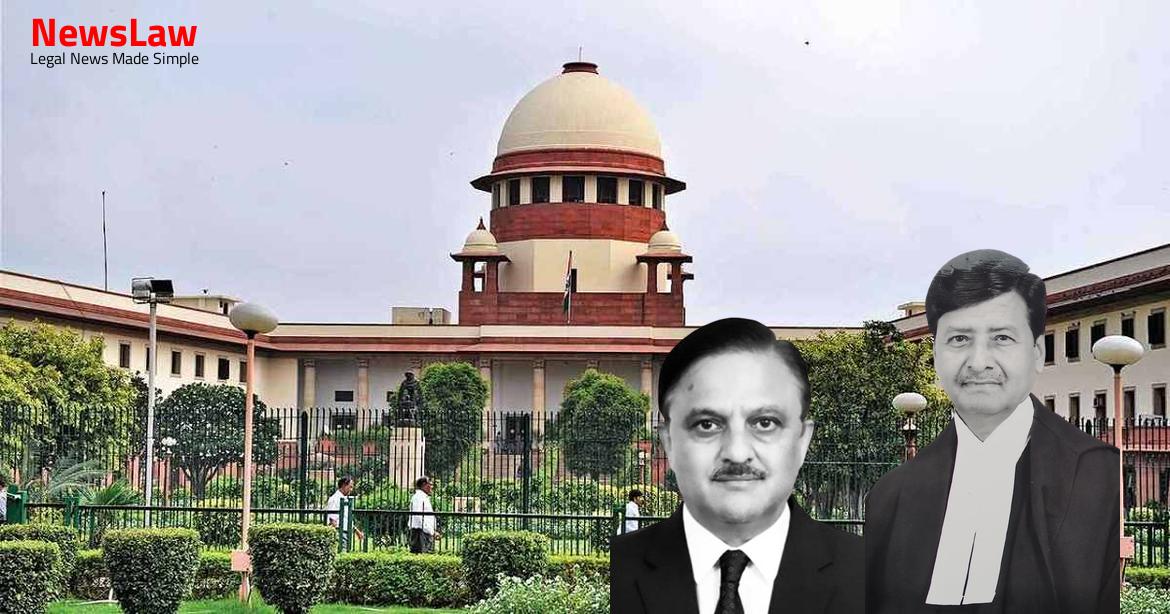Explore the in-depth legal analysis conducted by the court regarding the application of Section 319 of the Code of Criminal Procedure. The judgment emphasizes the importance of strong and cogent evidence, higher than a prima facie case, to summon an additional accused in a criminal trial. Delve into the complexities of when and how the court exercises its discretionary power under Section 319 in ensuring all guilty parties are brought to justice. #LegalAnalysis #CourtJudgment
Facts
- The trial Judge rejected the application filed under Section 319 of the Code of Criminal Procedure by the complainant to summon the present appellant as an accused.
- The complainant and his father were not eye-witnesses to the incident but only mentioned the removal of electric wire by the appellant.
- The investigating officer did not find sufficient evidence against the present appellant to include him in the chargesheet.
- Summoning under Section 319 cannot be based solely on some evidence against the person.
Also Read: Admission Deadline Adherence in Medical Courses
Analysis
- The power under Section 319 of CrPC should not be exercised if the court believes another person may also be guilty.
- Evidence must convince the court of the person’s involvement in the crime.
- A higher standard than prima facie case is required, falling short of a conviction.
- The court should not summon a person unless strong and cogent evidence points to their guilt.
- The evidence presented should be stronger than mere probability of guilt.
- The judgement criticized the setting aside of a well-reasoned decision by the trial judge.
- Section 319 of the CrPC allows for the addition of any person, not initially accused, if it appears from the evidence that they have committed an offense for which they could be tried along with the accused.
- The purpose of this provision is to ensure that all guilty parties are brought to justice in the same trial, avoiding the need for separate trials and potential contradictory outcomes.
- This aims to promote efficiency in the legal process and prevent the accused from escaping liability by simply not being named as a defendant originally.
- By allowing the consolidation of trials for related offenses, Section 319 serves the interests of justice and ensures that all involved parties are held accountable for their actions.
- The power under Section 319 of the Code is discretionary and extraordinary, to be used sparingly and only when circumstances warrant.
- The crucial test to be applied is more than a prima facie case but falls short of full satisfaction.
- The learned Single Judge of the High Court did not consider the basic principles while invoking Section 319 of the Code.
- The trial Judge’s order dated 30 January, 2018 was not properly considered.
- The appeal is successful and is allowed.
Also Read: From Nominee to Disqualified: Supreme Court Scrutinizes Age Evidence, Declares Election Invalid
Decision
- Pending applications to be disposed of.
- Application liable to be dismissed.
- Order of the High Court dated 28 July, 2021 quashed and set aside.
Case Title: SAGAR Vs. STATE OF U.P (2022 INSC 295)
Case Number: Crl.A. No.-000397-000397 / 2022



